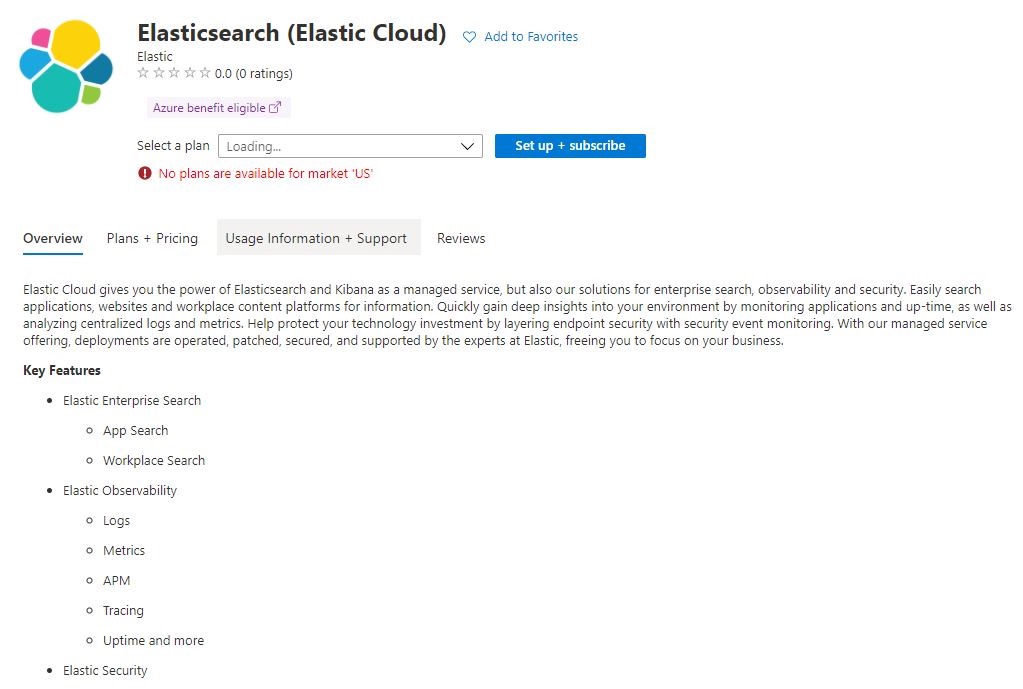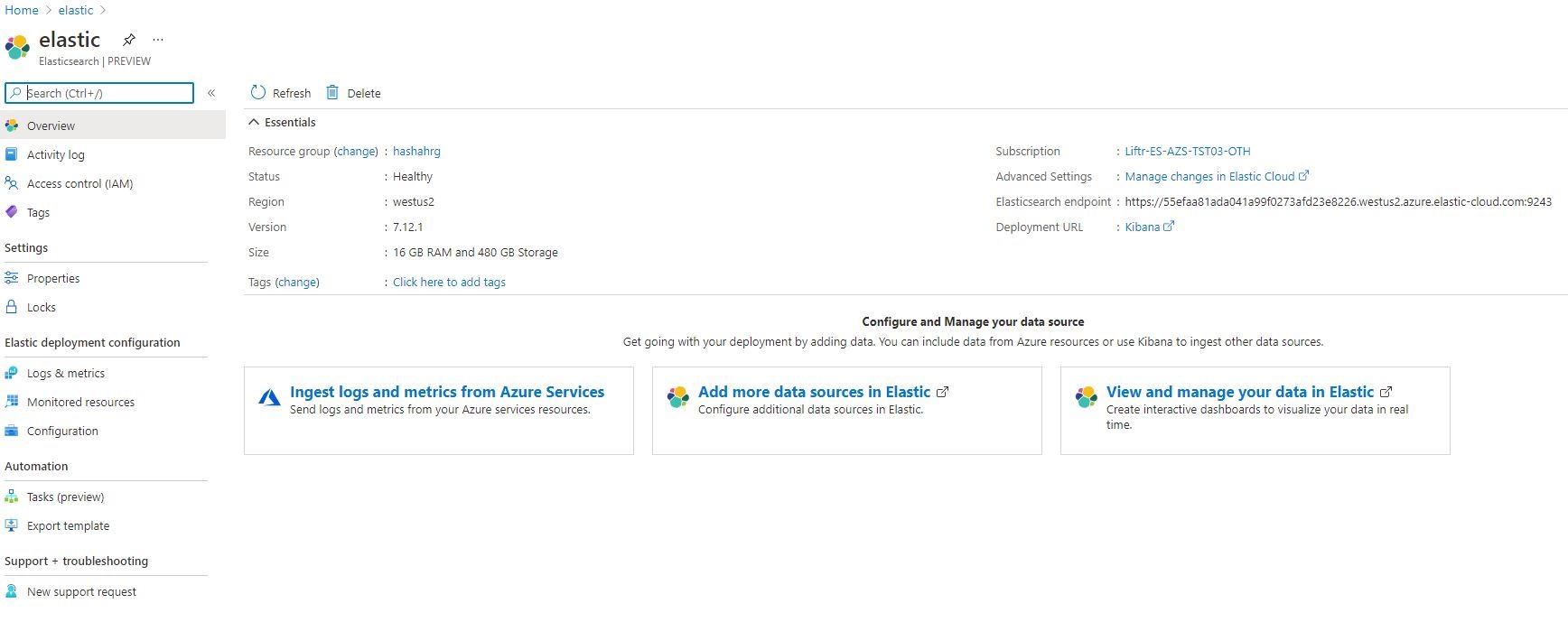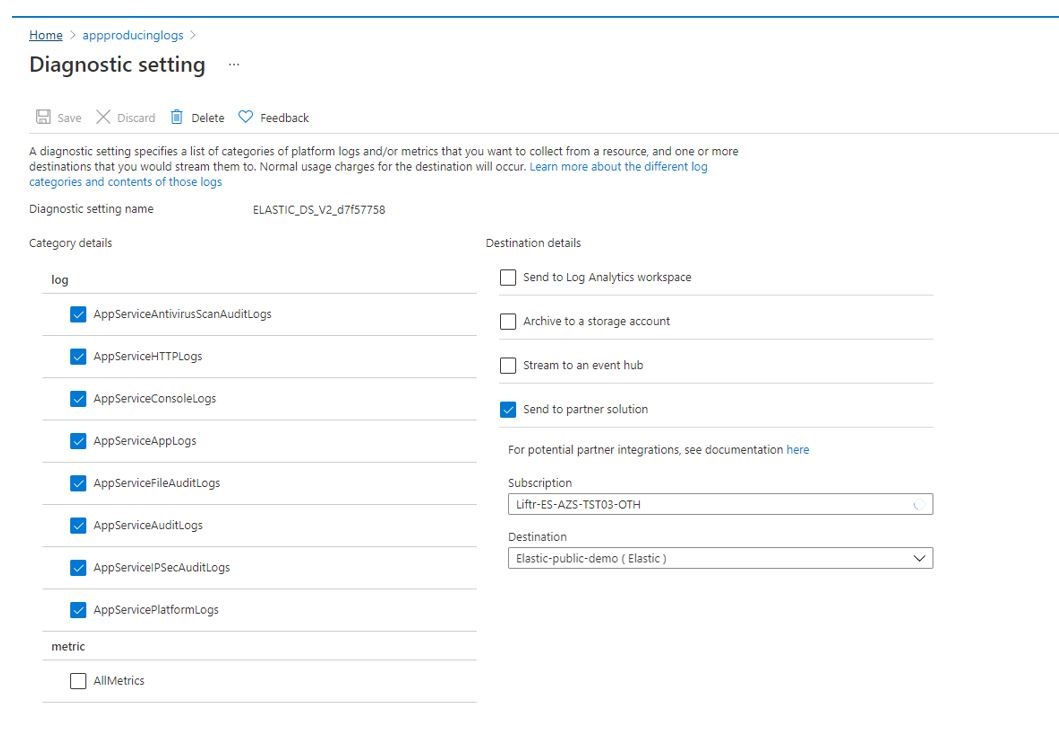20
May
Search made simple: native Elastic integration with Azure—now in preview
This post was co-authored by Rohit Tatachar, Senior Program Manager.
With the ever-increasing adoption of cloud-based solutions, and the incredibly complex make-up of the application architectures; the ability to effectively manage, orchestrate, and monitor the scenarios for search, security, and operations are becoming very critical for the success of the businesses.
As part of Microsoft Azure’s commitment to empowering customers to migrate and modernize their applications and run in the cloud, we work with partners to achieve this vision. Today, we are announcing the preview release of the Elastic offering on Azure. We worked closely with Elastic, the company behind Elastic Search, Kibana and Logstash, which provides observability, search, and security tools for users to monitor and understand the health and performance of their applications across their cloud and on-premises environments.
Customers use Elastic Search in all industries, applying the search and monitoring functionality across their VM resources, machine data, and more. They use Elastic to retrieve service logs, metrics, and visualize the data in Kibana for better decision making.
Watch the video below to check out an overview of Elastic on Azure.
 Configuring the Elastic stack on Azure can be a time-consuming process, which requires the knowledge and technical understanding of both the Elastic solution and Azure. Based on inputs from customers in the Open Source community and other users of the Elastic offering, we worked with Elastic to provide a seamless experience of their SaaS offering by integrating the deployment, billing, and support of the Elastic solution on the Azure cloud platform, made available through Azure Marketplace.
Configuring the Elastic stack on Azure can be a time-consuming process, which requires the knowledge and technical understanding of both the Elastic solution and Azure. Based on inputs from customers in the Open Source community and other users of the Elastic offering, we worked with Elastic to provide a seamless experience of their SaaS offering by integrating the deployment, billing, and support of the Elastic solution on the Azure cloud platform, made available through Azure Marketplace.
“The partnership with Elastic to integrate the Elastic workloads with Azure enables frictionless migration and operation of Elastic on Azure, customers not only get the benefit of a single portal experience, but can also centralize the management, billing and get support from Elastic for their Azure deployment.”—Julia Liuson, Corporate Vice President, Developer Division.
Ease of deploying and managing logs through Elastic on Azure
This integration offers customers the ability to use the Elastic SaaS solution from the Azure Control plane. Customers will be able to provision a new Elastic service and configure their Azure resources to automatically send logs and metrics to Elastic. With an automated log-forwarding process, customers can easily configure their resource logs with Elastic through the resources Diagnostic Settings in the Azure portal. In addition, customers have the ability to manage the Elastic agent on Azure Virtual Machine extensions to configure logs and metrics emitted from their VM hosts.
Security and managing virtual network communication
Security and the ability to control traffic through virtual networks is a critical consideration for our customers. Private Link access allows customers to securely connect from their Azure Virtual Network into the virtual network on Elastic Cloud. With single-sign-on (SSO) implemented in the solution, customers can seamlessly transition between Azure and the Elastic Cloud with a unified Azure credential. Finally, these integrations are also complemented with unified billing for the Elastic service through Azure subscription invoicing.
“This integration allows customers to set up their Elastic with Azure resources easily and reduce the operational overhead. Customers can find, deploy, and manage Elastic from within the Azure Portal, apply search, monitoring real-time data for any workloads and applications and protect all the data within their own Azure environment while leveraging Azure’s global presence, flexibility, security, and compliance for the best user experience at scale.”—Shay Banon, CEO of Elastic
Getting started with Azure Elastic service
Discovery and provisioning: Azure customers can find the service listed on Azure Marketplace and review the different plans offered and purchase it directly with single billing enabled. Within few clicks, you can deploy Elastic service in your desired subscription and datacenter regions with a preferred plan.
In Azure portal experience: Start using the Elastic service after provisioning, all Azure logs and applications can be easily connected. You can determine which Azure resource logs and metrics are sent to the Elastic resource.
Configuring logs: Configure resources to automatically send logs to your Elastic deployment.
Next steps
- Subscribe to the preview of “native Elastic integration with Azure” available in Azure Marketplace.
- Learn more about Elastic on Azure and how you can use the Elastic Stack from creators to search, analyze, and visualize in real time.


